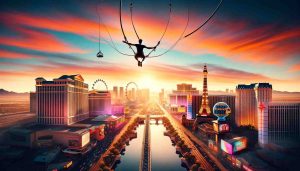Are you ready for an adventure that will make your heart race and leave you with memories to cherish forever? Bungee jumping is one of the most exhilarating experiences that can bring out the fearless side in all of us. As someone who has taken the leap myself, I understand the excitement and anticipation that comes with it. But before you gear up for your bungee jumping escapade, it’s essential to be well-prepared, and that includes what you eat before taking that big leap. Can you eat before bungee jumping?
Yes, you can eat before bungee jumping. But it is essential to choose the right foods and time your meal appropriately to ensure a safe and enjoyable experience. Ideally, have a well-balanced meal or light snack about 1 to 2 hours before your scheduled jump. Focus on foods that provide a mix of carbohydrates, proteins, and healthy fats to give you the energy you need without causing discomfort during the jump. Avoid heavy or greasy foods that may lead to stomach discomfort while jumping. Stay hydrated throughout the day, but be cautious not to overconsume water immediately before the jump.
In this friendly guide, I’ll walk you through all the details and provide you with some valuable tips to fuel your adventure safely and have the time of your life. Keep reading!
Understanding Bungee Jumping
Before I dive into the nitty-gritty of eating before bungee jumping, let’s get acquainted with the thrilling world of bungee jumping itself.
Bungee jumping is an extreme sport that allows you to defy gravity and experience a breathtaking freefall. It involves jumping from a high platform or a fixed object, like a bridge or a crane, while being securely attached to a strong elastic cord. As you leap into the void, that cord stretches and then recoils, propelling you upwards and downwards in a heart-pounding pendulum motion.
Safety is a top priority in the world of bungee jumping. Reputable bungee jumping operators meticulously inspect their equipment and follow strict safety protocols to ensure your adventure is as secure as it is exciting. Trained professionals will assist you throughout the entire process, from the moment you’re harnessed in until you safely touch the ground.
Now, you might be wondering, “Why would anyone voluntarily hurl themselves off a platform?” Well, bungee jumping isn’t just about the adrenaline rush; it’s an experience that pushes your boundaries, helps you conquer fears, and gives you a unique perspective on the world from a bird’s-eye view.
The feeling of euphoria and accomplishment after a successful jump is simply indescribable. You’ll walk away with an incredible story to share and memories that will last a lifetime. So, get ready to embrace the unknown and feel the rush of pure exhilaration as you take that leap of faith.
Remember, the success of your bungee jumping experience starts with a proper understanding of the sport and being aware of the safety measures in place. Now that you’re familiar with the essence of bungee jumping, let’s move on to the next step: making sure you’re fueled up and ready to embrace the adventure head-on!
The Timing of Your Meal
Timing is crucial when it comes to eating before bungee jumping. You want to ensure that you have enough energy for the jump without feeling too full or uncomfortable during the experience. So, let’s talk about the ideal timing for your pre-jump meal.
- Why Meal Timing Matters: Eating at the right time can significantly impact your bungee jumping experience. If you eat too close to your jump, you might feel bloated or nauseous during the freefall, which can dampen the thrill. On the other hand, jumping on an empty stomach can leave you feeling weak and fatigued, affecting your ability to enjoy the moment to the fullest.
- Ideal Time Gap Between Eating and Jumping: As a general rule of thumb, try to have your last meal at least 1 to 2 hours before your scheduled jump time. This window allows your body to digest the food properly, providing you with the energy you need without any discomfort.
- Morning Jumps vs. Afternoon Jumps: Consider the time of day when planning your bungee jumping adventure. Morning jumps offer the advantage of jumping on a relatively empty stomach if you have breakfast early enough. This can be beneficial if you’re someone who prefers a lighter stomach before an adrenaline-pumping experience. Afternoon jumps, on the other hand, allow you to have a well-balanced meal for lunch and jump later in the day, giving you ample time to digest.
Remember, every person’s body is different, and what works for one individual might not be the best approach for another. It’s essential to listen to your body and find what timing works best for you.
Let’s discuss what types of foods are ideal for fueling your bungee jumping adventure.
What to Eat Before Bungee Jumping
When it comes to what to eat before bungee jumping, the key is to strike a balance between providing your body with the necessary energy and avoiding heavy or greasy foods that could lead to discomfort during your jump. Here’s a breakdown of the best pre-bungee snacks and light meals:
- Balancing Nutrients: Aim for a well-rounded meal that includes a mix of carbohydrates, proteins, and healthy fats. Carbohydrates provide a quick source of energy, proteins aid in muscle function, and fats offer sustained energy for longer-lasting performance.
- Foods to Avoid: Steer clear of heavy, greasy, or overly spicy foods that might upset your stomach or cause indigestion during the jump. Stay away from large portions and foods that you’re not used to consuming.
- Pre-Bungee Snacks: If you prefer a light snack before your jump, go for easily digestible options like a banana, energy bar, or a small handful of nuts. These snacks provide a quick energy boost without making you feel too full.
- Light Meals: If you have some time before your jump and want a light meal, opt for something like a turkey or chicken sandwich with whole-grain bread, a salad with lean proteins, or a veggie wrap with hummus. These choices give you the right mix of nutrients without weighing you down.
- Stay Hydrated: Hydration is essential for optimal performance and comfort during your bungee jump. Drink enough water throughout the day leading up to your jump, but avoid excessive water consumption just before the leap to prevent discomfort.
- Personal Considerations: If you have any specific dietary restrictions or food allergies, be sure to plan your pre-jump meal accordingly. Choose foods that align with your dietary needs and won’t cause any issues during the jump.
Remember, the goal is to fuel your body with the right nutrients to enhance your bungee jumping experience without compromising on safety or comfort. Now that you know what to eat, let’s move on to the importance of staying hydrated before you take that thrilling leap.
Hydration – A Key Component
Staying hydrated is a key component of preparing for your bungee jumping adventure. Proper hydration ensures your body is performing at its best and helps prevent potential issues during the jump. Here’s why hydration is crucial and some tips to keep you in top shape:
- The importance of Staying Hydrated: Hydration plays a vital role in maintaining your body’s balance and overall well-being. When you’re properly hydrated, your muscles function optimally, your mind stays sharp, and your body can handle physical challenges more effectively.
- Recommended Fluids: Water is the best and most accessible choice for staying hydrated. Drink plenty of water throughout the day leading up to your bungee jump. Keep a water bottle with you and take sips regularly to keep your hydration levels up.
- Avoid Excessive Water Consumption: While it’s essential to stay hydrated, you don’t want to overdo it just before the jump. Drinking excessive amounts of water right before your leap might lead to discomfort during the jump, especially if you have a sensitive stomach. Stick to regular sips throughout the day instead.
- Limit Caffeine and Alcohol: Caffeinated and alcoholic beverages can contribute to dehydration, so it’s best to limit their consumption before your bungee jumping experience. Opt for water or natural fruit juices instead.
- Check with the Bungee Operator: Some bungee jumping locations might have specific guidelines regarding hydration before the jump. It’s always a good idea to check with the bungee operator or their safety guidelines to ensure you’re following their recommendations.
- Recognize Signs of Dehydration: Be mindful of signs of dehydration, such as excessive thirst, dry mouth, dark-colored urine, dizziness, or fatigue. If you notice any of these signs, take a break and hydrate immediately.
Remember, preparation for bungee jumping isn’t just about what you eat but also how you fuel your body with the right fluids.
Bungee Jumping with Special Dietary Needs
If you have special dietary needs or restrictions, you can still enjoy the thrill of bungee jumping while ensuring your nutritional requirements are met. Here’s a guide on how to approach bungee jumping with specific dietary considerations:
- Addressing Dietary Restrictions and Allergies: If you have dietary restrictions or food allergies, it’s crucial to plan your pre-jump meal carefully. Research restaurants or eateries near the bungee jumping location that offer options aligning with your dietary needs. Many places cater to various dietary preferences, including gluten-free, dairy-free, and nut-free options.
- Suitable Meal Options for Vegetarians and Vegans: Vegetarians and vegans can find plenty of delicious and nutritious meal options before their bungee jump. Choose plant-based protein sources like tofu, tempeh, beans, or lentils and pair them with grains and vegetables for a well-balanced meal.
- Handling Specific Health Conditions: If you have specific health conditions, such as diabetes or other medical concerns, consult with your healthcare provider before bungee jumping. They can provide personalized advice on what foods are best for you before the jump and how to manage any potential blood sugar fluctuations.
- Pack Your Own Snacks: If you’re unsure about the availability of suitable food options near the bungee jumping location, consider packing your own snacks. Portable options like fruit, granola bars, or trail mix can be great alternatives.
- Communicate with the Bungee Operator: When booking your bungee jumping adventure, let the operator know about your dietary restrictions or allergies. They may be able to accommodate your needs or provide additional information on nearby food options.
Your safety and well-being are paramount, and ensuring your dietary requirements are met will help you fully enjoy your bungee jumping experience.
How to Manage Pre-Jump Nervousness
It’s completely normal to feel pre-jump nervousness before taking the plunge into the abyss. Bungee jumping is an exhilarating experience, and those butterflies in your stomach are a testament to the adrenaline rush you’re about to experience. Here are some helpful tips to manage pre-jump nervousness and get mentally prepared for your bungee jumping adventure:
- Acknowledge and Embrace Your Feelings: It’s okay to feel nervous or anxious before bungee jumping. Acknowledge your emotions and remind yourself that it’s a natural reaction to an extraordinary experience.
- Visualize a Successful Jump: Spend some time visualizing yourself successfully completing the jump. Picture yourself feeling exhilarated, happy, and proud as you soar through the air. Visualization can help build positive anticipation and confidence.
- Talk to the Professionals: Bungee jumping operators are experts in managing pre-jump nerves. Talk to the instructors or guides and express your feelings. They can offer reassurance, share their experiences, and provide valuable tips to ease your nerves.
- Practice Deep Breathing: Deep breathing exercises can help calm your nervous system. Take slow, deep breaths before the jump to relax your body and mind.
- Find a Bungee Jumping Buddy: If possible, jump with a friend or family member. Sharing the experience with someone you trust can provide comfort and support during the pre-jump jitters.
- Engage in Light Physical Activity: Doing some light physical activity before the jump can help release endorphins, which are natural mood boosters. Take a short walk or perform some gentle stretches to ease tension.
- Limit Caffeine and Sugar: Avoid excessive caffeine and sugary treats before the jump, as they may exacerbate nervousness or lead to energy fluctuations.
- Focus on the Adventure Remind yourself of the incredible adventure you’re about to embark on. Embrace the excitement and the opportunity to challenge yourself.
- Stay Positive and Trust the Process: Keep a positive mindset and trust in the safety measures taken by the bungee jumping professionals. They prioritize your well-being and ensure a secure and enjoyable experience.
- Mindfulness Techniques: Practice mindfulness techniques such as meditation or grounding exercises to stay present and focused on the moment.
Remember, nerves are a natural part of the bungee jumping experience, and conquering them adds to the thrill of the adventure.
Post-Jump Nutrition and Recovery
After the adrenaline rush of bungee jumping, it’s essential to focus on post-jump nutrition and recovery to replenish your energy and support your body. Here’s a guide to nourishing yourself after the exhilarating leap:
- Celebrate with a Nourishing Meal: After the jump, treat yourself to a well-deserved, nourishing meal. Choose a balanced option that includes carbohydrates, proteins, and healthy fats to aid in recovery. Lean proteins help repair and build muscles, while carbohydrates replenish your energy stores.
- Stay Hydrated: Don’t forget to hydrate after the jump. Water, coconut water, or natural fruit juices can help rehydrate your body and restore any lost fluids.
- Snack on Energy-Boosting Foods: If you’re not ready for a full meal immediately after the jump, opt for light and energy-boosting snacks. Fruits, nuts, granola bars, or a smoothie can provide a quick pick-me-up.
- Stretch and Relax: Engage in some gentle stretching to release any muscle tension that may have built up during the jump. Yoga or light stretching exercises can be beneficial.
- Allow Time for Rest and Recovery: Your body has just experienced an intense adrenaline rush, so give yourself some time to rest and recover. Listen to your body’s signals and take it easy if you feel fatigued.
- Support Your Body with Nutrients: Consider taking supplements or vitamins, like vitamin C or B-complex, to help your body cope with the physical and emotional stress of the jump.
- Avoid Excessive Alcohol and Caffeine: After the jump, try to avoid excessive alcohol and caffeine consumption, as they can impact your body’s recovery process.
- Savor the Experience Take time to reflect on the incredible experience you’ve just had. Savor the memories and embrace the feeling of accomplishment.
Post-jump nutrition and recovery are essential for helping your body bounce back after the intense experience of bungee jumping. Taking care of yourself physically and mentally ensures that you can relish the thrill and excitement of your adventure to the fullest!
Conclusion
In conclusion, Yes, you can eat before bungee jumping but with some essential considerations. Opt for a well-balanced meal or light snack at least 1 to 2 hours before your jump, combining carbohydrates, proteins, and healthy fats. Stay hydrated throughout the day, avoiding excessive water intake just before the leap.
Remember, bungee jumping is not only about taking that thrilling leap; it’s about the whole journey. From understanding the sport to fueling your body and managing pre-jump nerves, you’ve learned how to approach every aspect with confidence and enthusiasm.
Embrace the butterflies in your stomach, visualize success, and seek support from professionals and friends. And after the jump, nurture your body with nourishing food and hydration. Take time to rest and recover, celebrating the triumph of facing your fears head-on.
Remember that safety is paramount, so always follow the guidance of the bungee jumping professionals and ensure you’re physically and mentally prepared for this exhilarating adventure.
As you stand on that precipice, take a moment to appreciate the journey that led you here. The rush of adrenaline, the feeling of weightlessness, and the sense of accomplishment will forever be etched in your memory. You’ve now got all the tools to make your bungee jumping experience extraordinary and unforgettable. Happy jumping!
Here’s another great article that you should read next: A Comprehensive Guide To Bungee Jumping Injuries: Can You Get Hurt?










